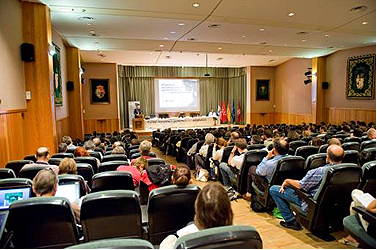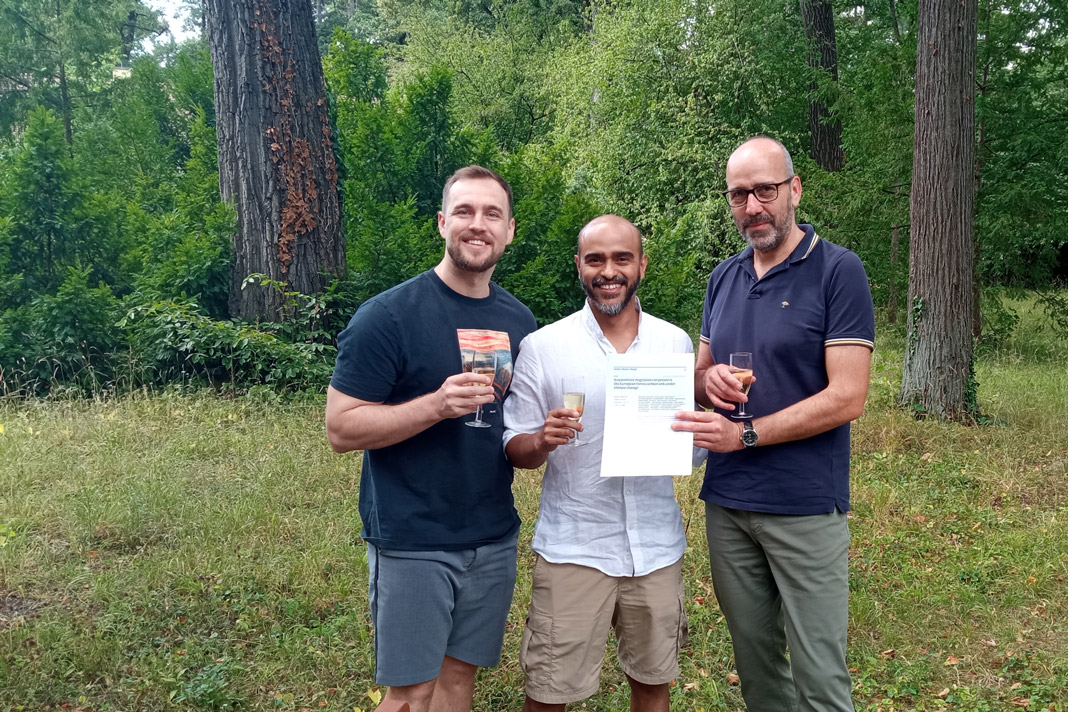Advances in forest ecosystem genomics
Ecosystem genomics is an emerging field of research linking genetics, genomics, ecology and evolution to study the response of individual organisms and communities to biotic and abiotic influences.
Ecosystem genomics is an emerging field of research linking genetics, genomics, ecology and evolution to study the response of individual organisms and communities to biotic and abiotic influences. It is widely accepted that forests play a major role in climate change, so a deep understanding of how they function and respond to environmental changes is particularly important. Advances in forest ecosystem genomics offers new opportunities to study the structure and evolution of gene diversity at the individual population and community level.
On 9-11 June 2010, an international conference on “Forest Ecosystem Genomics and Adaptation” was held in San Lorenzo de El Escorial (Madrid), Spain. The event gathered about 230 participants from 37 countries to discuss recent scientific findings in this area. The conference was organized by the EVOLTREE Network of Excellence, which is funded by the European Commission’s 6th Framework Programme for Research.
The conference sessions focused on a range of themes from phenotypic variation in different adaptive traits, to novel screening techniques to identify gene-functions, from different approaches to understanding evolutionary responses to environmental changes in trees and associated species to the recent findings on dispersal, colonization dynamics and pollination ecology. The most recent technological developments, including new sequencing technologies, high throughput genotyping methods, data handling and management applicable to ecosystem genomics were also presented.
The conference showed that our understanding has progressed considerably and we have now available large catalogues of genes that are responsible for determining adaptive responses of forest ecosystems. However, despite the technical achievements more work is needed to address some issues not properly tackled yet, such as how genes move across landscapes through different dispersal mechanisms.
Stakeholder session
The conference included a stakeholder session, which included two invited presentations. Bruno Fady (INRA-Avignon, France) demonstrated how forest ecosystem genomics research can contribute to conservation of tree genetic resources and Bernd Degen (Federal Research Institute for Rural Areas, Forestry and Fisheries, Germany) presented a case study on how forest ecosystem genomics can support appropriate use of forest reproductive material and certification of its origin.
The presentations were then followed by panel discussions during which various stakeholders brought up their needs and highlighted important issues. In addition to the speakers, the panelists included Lennart Ackzell (Federation of Swedish Forest Owners, Sweden), Ricardo Alia (CIFOR-INIA, Spain), Catherine Bastien (INRA-Orleans, France), Berit Lindstad (Liaison Unit of Forest Europe, Norway), Kurt Ramskogler (LIECO GmbH & Co KG, Austria) and Tore Skrøppa (Norwegian Forest and Landscape Institute, Norway).
The panelists expressed strong need for answers to the following questions; 1) how existing forests should be managed to maintain their genetic diversity and adaptation capacity to climate change, and 2) how forest reproductive material should be used and transferred in the face of climate change? They stressed that there is a need for better guidelines (e.g. forest management, use and selection of forest reproductive material) and risk management options to balance production and adaptation capacities. They also pointed out that provenance regions in different countries should be re-designed and harmonized at pan-European level. Furthermore, they noted that a pan-European scheme for certification of the origin of forest reproductive material would be very useful.
It was also highlighted that coordinated efforts are needed for conservation of forest genetic resources both at national and international level. National programmes or strategies on forest genetic resources are important tools and building blocks for which international collaborative efforts, such as the European Forest Genetic Resources Programme (EUFORGEN), can build on their activities. Such international programmes on forest genetic resources also serve as platforms for science-policy-practice dialogue. The panelists recognized that the results of EVOLTREE, in particular the common research infrastructures for ecosystem genomics research, offer significant benefits for the future work on conservation and use of forest genetic resources.
Related Links
- EVOLTREE








